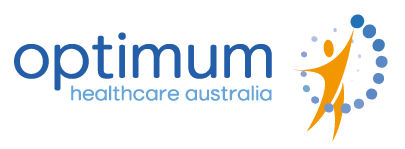Understanding the NDIS Funding Process: A Guide for Support Coordinators
Understanding the NDIS Funding Process: A Guide for Support Coordinators
Navigating the National Disability Insurance Scheme (NDIS) can be complex, especially for new Support Coordinators helping clients with disabilities access crucial services. This guide simplifies the NDIS funding process, highlights key stages, and offers practical tips to maximize support for your clients.
The Basics of NDIS Funding
The NDIS provides tailored funding and support to individuals with disabilities. Plans include three funding categories:
- Core Supports: For daily needs, such as personal care and social activities.
- Capital Supports: Covers high-cost items like assistive technology and home modifications.
- Capacity Building Supports: Focuses on skill-building and independence, including therapies and employment support.
Understanding these categories helps in developing a holistic plan that addresses each client’s needs.
Key Stages of the NDIS Funding Process
The Support Coordinator assists throughout the key stages of NDIS funding process:
- Initial Application: Provide guidance on eligibility and assist in compiling necessary documents.
- Plan Creation: Offer insights on client goals and needs to ensure essential supports are included.
- Plan Implementation: Coordinate services outlined in the client’s plan. Connect clients with trusted providers like Optimum Healthcare, ensuring timely support.
- Plan Review and Reassessment: Assess client progress, identify any support gaps, and gather evidence to secure additional funding if required.
Maximizing Funding for Allied Health Services
Maximizing funding requires strategic planning:
- Prioritize Impactful Services: Encourage clients to focus on high-impact therapies.
- Use Capacity Building for Essential Services: Access Allied Health Services to build skills and work towards NDIS goals.
- Advocate for Additional Funding in Reviews: Submit updated reports during reviews to secure more support.
- Promote Home Exercise Programs: Encourage independent exercises to extend the benefits of formal therapy.
Collaborative Approach with Providers
Collaboration with allied health providers is essential:
- Maintain Clear Communication: Keep providers, such as Optimum Healthcare, informed of progress and any treatment adjustments.
- Request Progress Reports: These insights aid in tracking achievements and justifying funding needs.
- Hold Team Meetings: Align everyone on the client’s goals and needs.
Addressing Common Challenges
Some common challenges faced by support coordinators will need to be addressed:
- Insufficient Funding: Document unmet needs and request additional support in reviews.
- Access Delays Due to Clinician Shortages: Work with providers offering immediate services, like Optimum Healthcare.
- Limited Awareness of Benefits: Educate clients on allied health benefits to ensure they prioritize necessary therapies.
Key Takeaways
In conclusion, it’s important to:
- Understand Funding Categories: Tailor support to meet individual needs.
- Build a Strong Provider Network: Collaborate with quality providers for timely, effective care.
- Utilize Reports for Funding Requests: Regular reports help justify additional support.
- Emphasize Skill-Building: Capacity Building Supports foster greater independence.
Support Coordinators are vital in guiding clients through the NDIS process and connecting them with quality care. To help clients access personalized support, consider partnering with Optimum Healthcare, where our skilled team is ready to support your clients’ journey.
